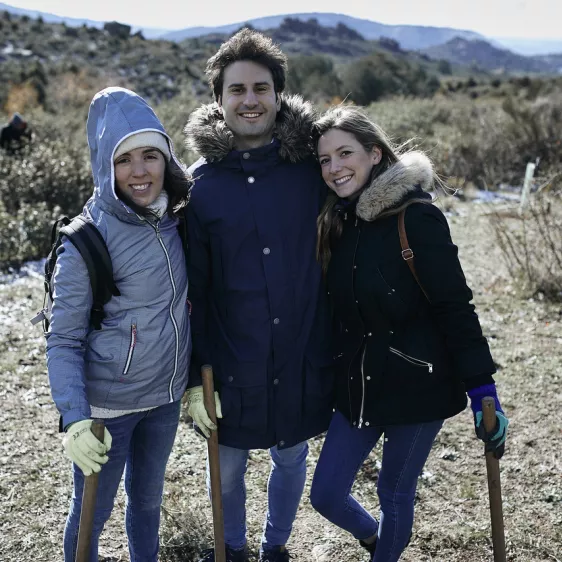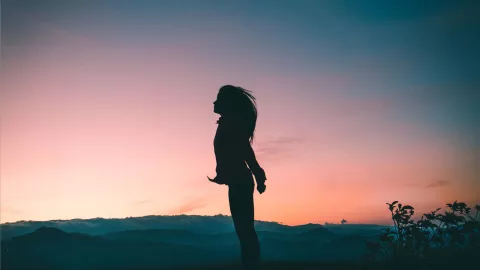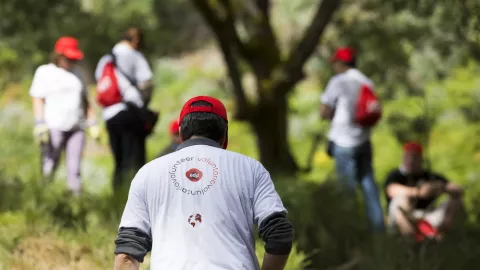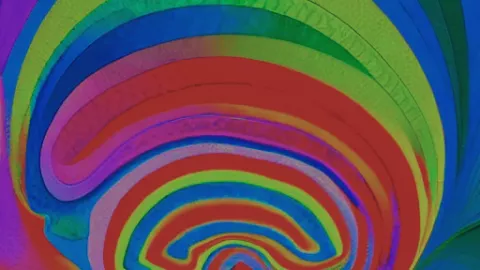As hobbies, and unashamed to fail, artistic practices can become safe spaces for mental .
and creativity walk hand in hand. Reflecting on how mindfulness improves mental well-being provides an answer to this question: how does training the ability to concentrate help with managing the stressful experiences of daily life? If mindfulness is a mechanism for managing the emotions by training the ability to concentrate, then we can say that art can be a strong ally.
October is the month in which EDP celebrates the Mind your Mind campaign, with the principal goal of raising awareness among our people of the importance of mental health, to which we are committed, through talks, training and a range of initiatives. It is essential, in this context, to discuss mindfulness and different ways to achieve it.
On one hand, regular mindfulness practices unlock creativity. Through them, one breaks out of a mental mode of operation that at times can be very restrictive and constraining.This opens internal space for the mind to express itself in other ways and increased creativity is something that registers in a regular practitioner.
Conversely, artistic practice can also be a gateway to relaxation, almost like training our attention. Developing oneself artistically can be a way to become more in self-contact, with the emotional events that arise in daily life. You probably have a healthier channeling of those emotions by directing them into your artistic expression, rather than suppressing what you feel.
The likelihood of someone becoming a pressure cooker of emotions is lower when they freely express feelings such as anger, fear or anxiety. We are not talking about producing masterpieces or artistic work with recognition. If it comes from an inner attitude of acceptance and absence of self-criticism, anyone can find an art form that is comfortable for them. Without self-sabotage, with courage to fail and permission to experiment, it is possible for everyone to be an artist in their own world.
This has already been demonstrated by our people at EDP who regularly practice art, some as hobbies, others semi-professionally. Relaxation and being in the moment are what is important. And there is something else that becomes clear: it is never too late to start!
Paulo Martins Ferreira - Ethics Officer, EDP
"I began playing classical guitar at 12 years old and only later, at 18, decided to play Portuguese guitar, having by this time entered the National Conservatory Music School. I always had access to Portuguese guitar recordings at home, which sparked my interest. The passion was immediate, not only because it is an instrument steeped in Portugal, but also because it has unique characteristics, with the enveloping resonance. Later, I followed the same path as all guitarists, visiting the fado houses to learn from experience, where today I play regularly.
I believe that all musicians recognise the power of music on their psychological and emotional well-being. It is a refuge where I aim to free myself from the day-to-day worries, letting my emotions flow through the instrument.
The stage, the audience that recognises and appreciates what we do, the sharing of unique moments with other musicians, are all crucial aspects of my well-being. I would say that it is a healthy addiction. It has easily detectable effects on my mood and my ability to concentrate."

Fernanda Fernandes Ferreira - People Manager, Instituto Energias Brazil
"Manual work has always been part of my life! I am the daughter of a seamstress and the granddaughter of an embroiderer, and so I can say I have practised this since I was a child, always playing with materials, threads, new needlework, designs and combinations of colours. But, five years ago, I came closer to embroidery, everytime I looked for a relaxation and/or concentration moment.
When I am embroidering, I focus on the development of each stitch, breathe more calmly and am able to silence my thoughts, because I am totally focussed on the embroidery, in the present moment. Generally, I embroider at night, after work. It is practically a relaxation ritual. Before starting to embroider, I must admit I do feel a certain anxiety, but it's a positive anxiety: I have ideas, I keep thinking about how I will do it, the colours, the needlework... the actual creative process. Once I'm embroidering, it is wonderful, a time of concentration and great lightness. There is a corner of the living room with a comfortable chair where I put on some music and the time flies past.
At the end of October, I started an embroidery workshop at EDP. I invited some close colleagues to embroider together, once a week, during lunch time. This way, we make the most of the days we must come to the office, we get to know each other better, talk about life, have a laugh and create this well-being ritual. The embroidery is just an excuse!"

Vanda Martins - Director of Fundación EDP, Spain
"I remember that, from a very young age, listening to the piano relaxed me immensely. It gave me peace and time to be at one with myself. Today, more than ever, I need these moments of peace and deep connection with myself. Music feeds my soul.
I started learning to play piano because it was a dream I've had since childhood. This year I decided to follow my dream because I think it is always time to learn, to start things that are important for my well-being and that contribute to my happiness. Playing the piano is fundamental for my mental wellbeing and consequently, for the people around me because we are all interconnected.

Life at EDP
Well-being and Benefits
October was the Mind your Mind month where we raised awareness among our people of the importance of mental health. However, ensuring individual well-being is always a top priority for us. We want to ensure a positive and impactful experience for each of our employees.




